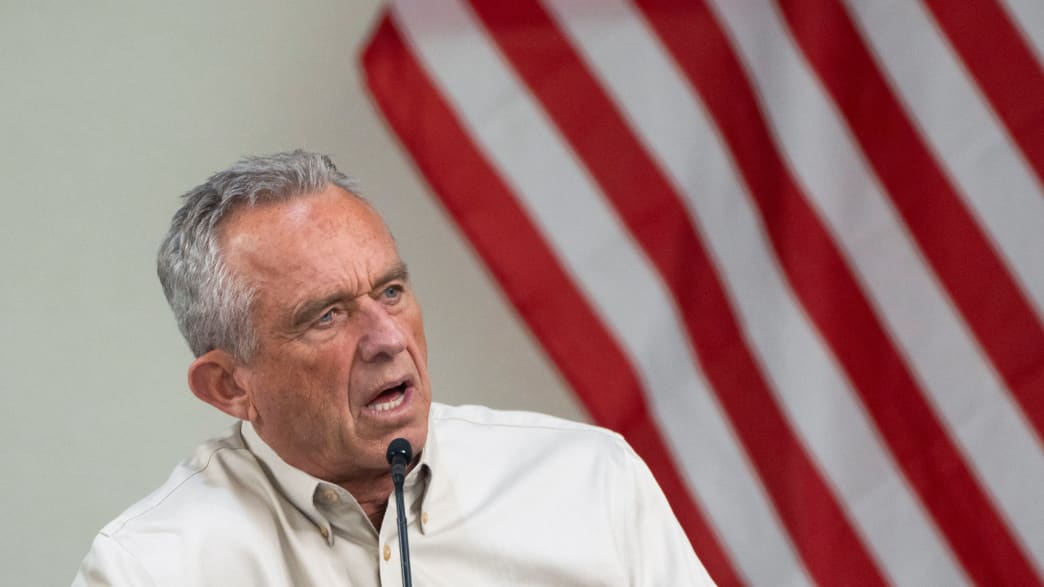Teamsters Show Strong Trump Support in Battleground States, Bypass Harris Endorsement
The International Brotherhood of Teamsters, in a notable shift from other major U.S. labor unions, has opted not to endorse either Vice President Kamala Harris or former President Donald Trump for the upcoming 2024 presidential election.
This union decision highlights Trump's surprisingly high standing among its members, especially in crucial battleground states, and Harris' performance among the rank and file marks a stark drop in what has long been support for Democratic Party candidates, as Fox News reports.
In a move that sets them apart from the nation's other top labor organizations, the Teamsters have decided to remain neutral in the presidential race. This is a significant departure from their past endorsements, which have typically aligned with Democratic candidates.
Historically, the Teamsters have been seen as a bellwether for labor support in political races. Their endorsement, or lack thereof, can signal broader labor trends and has potential implications for voter turnout among working-class electorates.
Teamsters' Endorsement History and Its Political Weight
Teamsters Joint Council 75, representing members in states like Georgia, Florida, and Alabama, chose to endorse Vice President Harris. However, this regional support contrasts sharply with the national union's stance of non-endorsement.
The local unions supporting Harris include a substantial portion of the Teamsters, tallying over 1.5 million active and retired members across the United States, with more than half a million in battleground states alone.
Despite this local support for Harris, a union-wide survey conducted over nearly two months revealed a strong preference for Trump among the rank-and-file members in these pivotal regions.
Survey Reveals Trump's Edge Among Union Workers
The survey, which spanned from July 24 to Sept. 15, showed a significant tilt toward Trump over Harris among Teamsters members.
This support surged notably after Biden announced he would not seek reelection, positioning Harris as the Democratic nominee.
Previously, under Biden's candidacy, the Teamsters had shown more balanced support between the two major party candidates. The shift toward Trump has been stark, reflecting broader dissatisfaction with the current administration's commitments to labor.
Sean O'Brien, the general president of the Teamsters, explained the decision to withhold the union's endorsement by pointing to the candidates' lack of concrete commitments to labor rights and protections.
Union Leadership Expresses Disappointment with Candidates
"Neither major candidate was able to make serious commitments to our union to ensure the interests of working people are always put before Big Business," said O'Brien, expressing a sentiment that may resonate with many union members feeling overlooked in political agendas.
Trump commented on the situation by acknowledging the influence of the Teamsters, saying, "The Teamsters carry a lot of weight." This remark underscores the perceived value of labor support in electoral politics, particularly in tightly contested races.
Harris, for her part, addressed some of the concerns during an interview with MSNBC, critiquing Trump's promises to labor: "Made a whole lot of promises that he did not meet and, one would argue, broke."
Harris and Trump on Labor: A Critical Perspective
The tension between the candidates' promises and their perceived actions adds a layer of complexity to the Teamsters' stance.
With Biden previously recognized as a pro-union president who even joined picket lines with striking workers, Harris's alignment with his legacy is scrutinized.
The contrast in endorsement and support within the Teamsters illustrates a fractured landscape in labor politics as the 2024 election approaches. It highlights the challenges Harris faces in consolidating the same level of union support that Biden once enjoyed.
As the election nears, the impact of the Teamsters' decision and the broader labor movement's shifts could play a critical role in determining the next president, especially in battleground states where union influence is strong.



